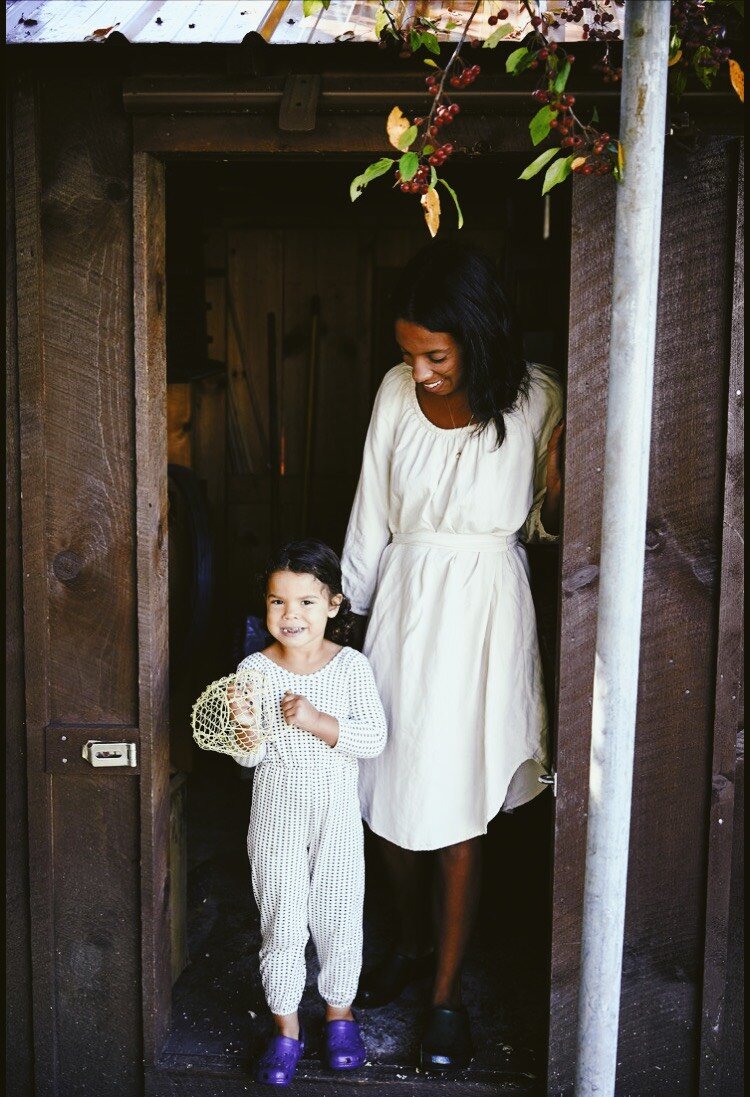
ALYSON MORGAN | MAIA TERRA
Last year Alyson Morgan began her blog Maia Terra as a way to build community in conversations around climate change, environmental stewardship, and spiritual resilience. From the vantage point of the small homestead in rural Viroqua, Wisconsin, where she and her husband are raising their two small children, Alyson shares her perspective on consumerism, environmental responsibility, mindfullness and meditation.
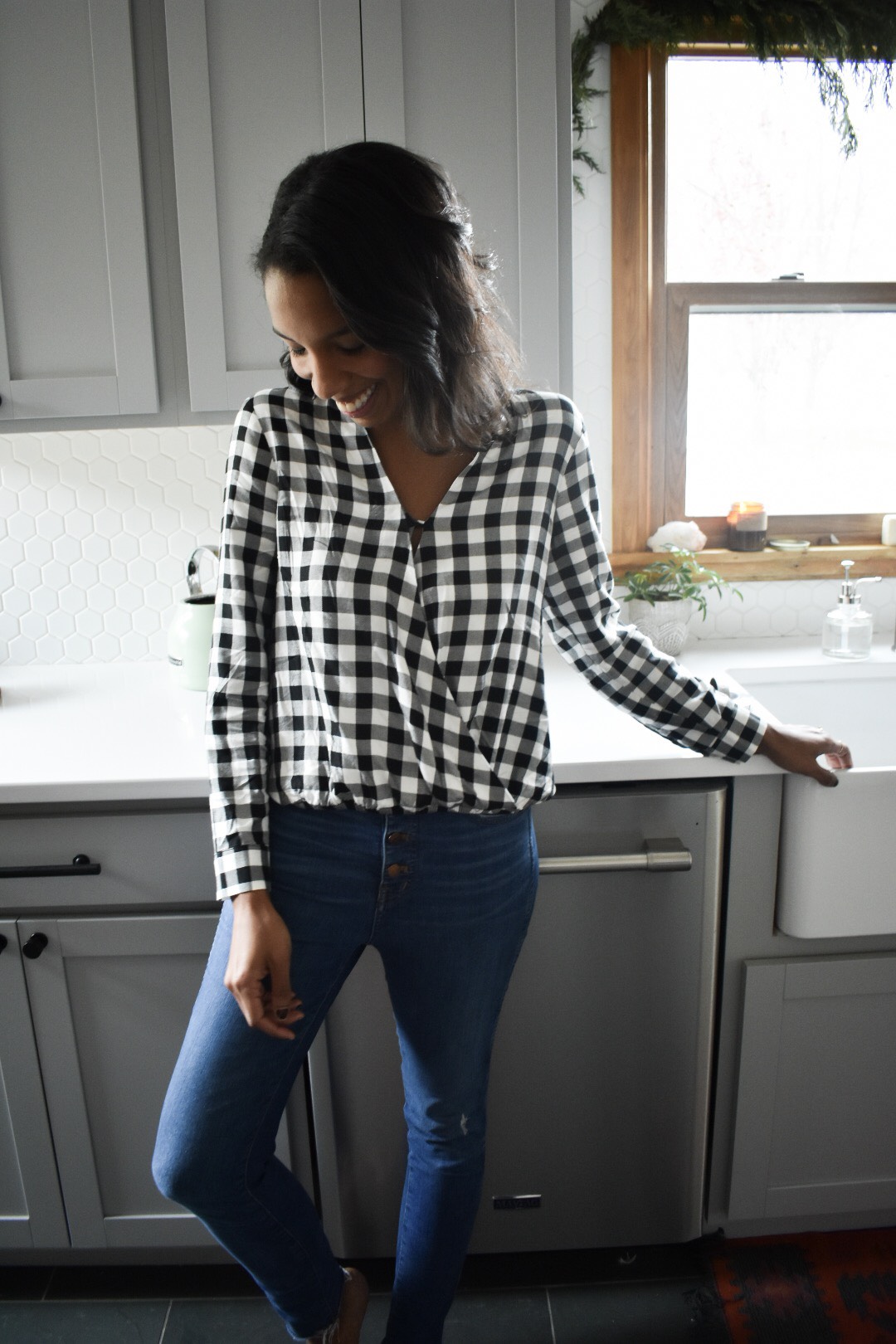
ERIN: Let’s start with you sharing a bit about yourself with RMTL readers who might not be familiar.
ALYSON: I’m Californian, born and raised. A black woman living in a rural midwest town with my husband, raising our multiracial family on a little enchanted homestead on our journey to living more simply, sustainably and aligned with the earth’s cycles and rhythms. In order to heal my wounds I brought my instagram account public in January. I could not continue to be small. I needed to share the parts of myself I kept hidden and challenge feelings of worthlessness tied to growing up a black woman in a white society. I try my best to authentically share moments of my wild life, honest thoughts, and my path to healing. I followed this “coming out” by starting my blog, Maia Terra, in January of last year. Maia Terra is a collaborative space in which I seek to create a community to talk about climate change and how to build spiritual resilience.
I graduated from University of California, Davis with an international relations degree with an emphasis on climate change, migration, adaptation and resilience. I worked at research centers but felt the research process was enmeshed in the capitalist system. How could they be a solution to climate change when they relied on funding from sources that were precisely the problem? Disenchanted and filled with anxiety and hopelessness, I quit graduate school, my husband and I packed up and moved to the midwest to start a family.
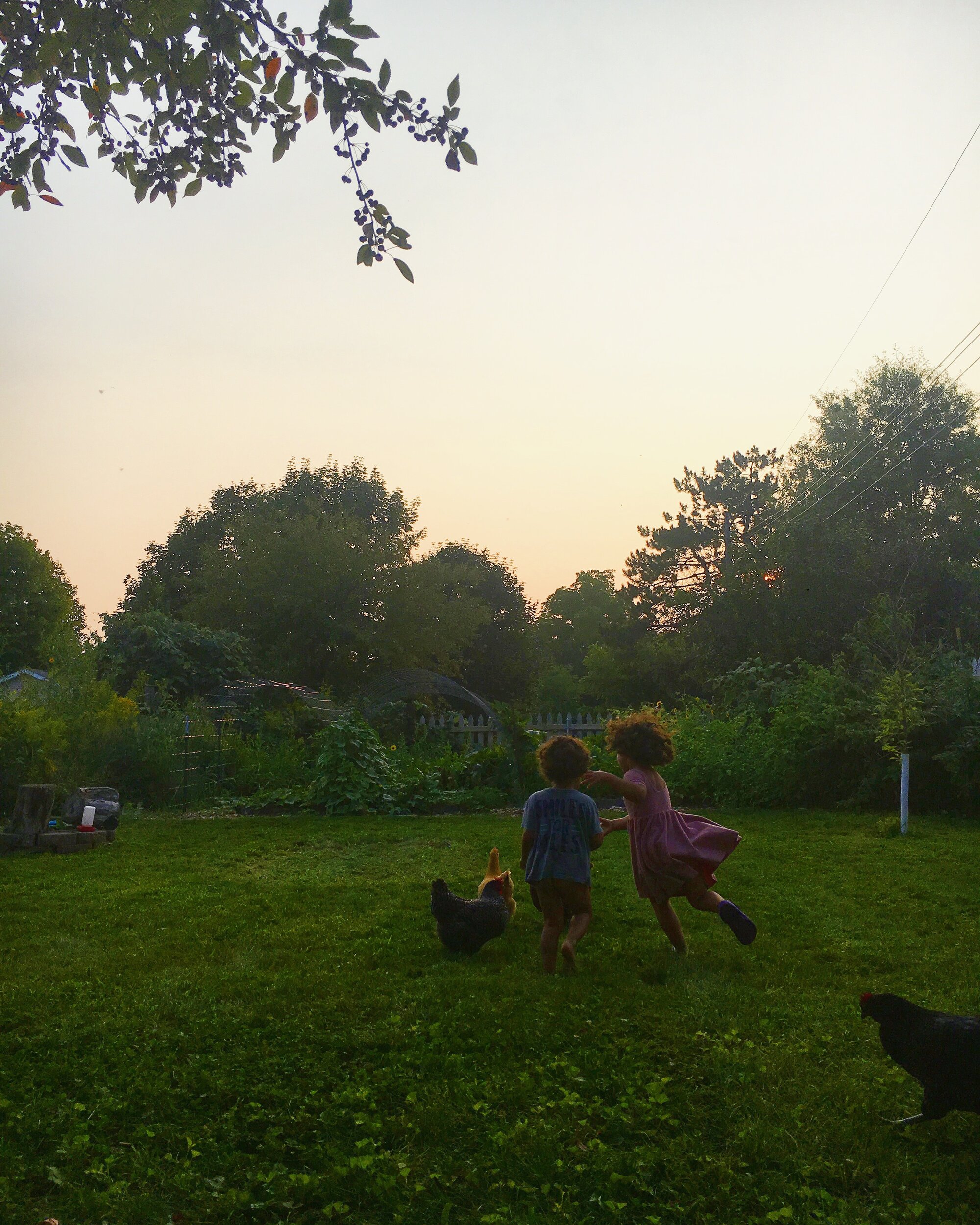
Maia Terra was born at the intersection of motherhood and climate change. It had been in my mind and heart for nine years, but became urgent when my daughter, Magnolia, was born. I could not ignore my education and the facts. I cannot sit by and do nothing or say nothing. Our planet and our children futures are at stake. I wanted to connect with other mothers and humans that feel similarly, to be in community with people who want to share their voices, ideas and expertise on how we can transform as individuals and communities to be real stewards of the earth. That is my work in progress.
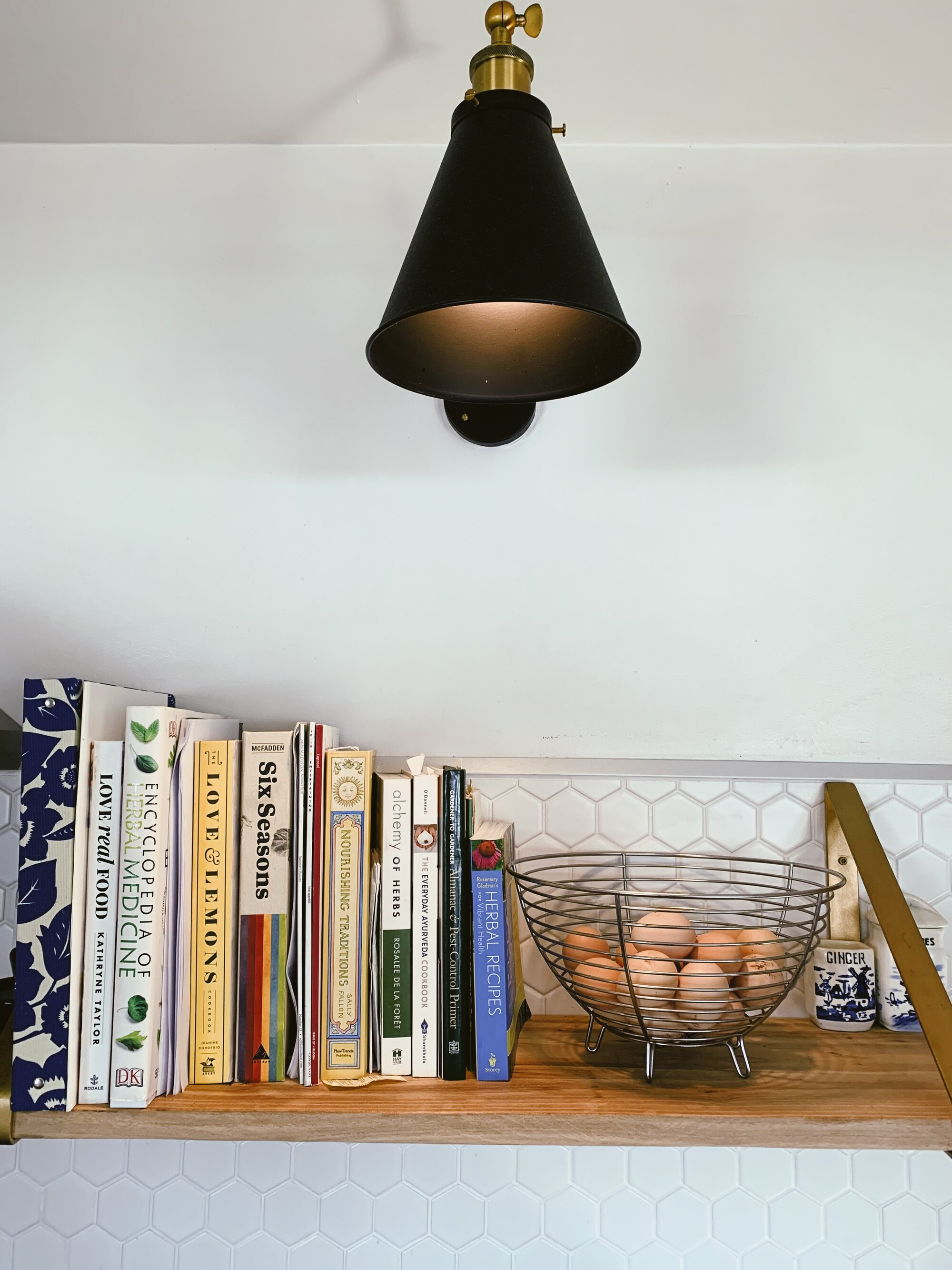
It will take a qualitative shift in consciousness and collective healing to address climate change. On Maia Terra, we want to investigate with compassion and in community, why we rely on consumption to fill our spiritual void and why we allow capitalism’s environmental degradation. In my mind, that conversation is getting closer to the root of the problem. Consuming our way to sustainability is more of the problem. Buying a reusable bottle and bag are better ethical and conscious decisions, but are not going to solve the problem. It puts the onus on the individual to solve climate change, shifts blame, and is rooted in the problem: individualism. I am in no way above the fray, at this point we are not zero waste, I often still opt for convenience, ordering on Amazon and buying something wrapped in plastic.
The real solutions are not black and white and they are not easy. But in the conversation about climate change, zero waste, etc. we often forget to talk about the big players. Oil companies, car manufactures, the meat industry, just some of those who have a stake in the system staying as it is. That is where our power as consumers lie. Our collective choices can make a difference. On Maia Terra, we are looking to have open ended, inspiring conversations about how to shift into an ecological mindset, viewing the planet, each other, our communities as home. We want to dive into the challenges and privileges of “green living” and “wellness” communities.
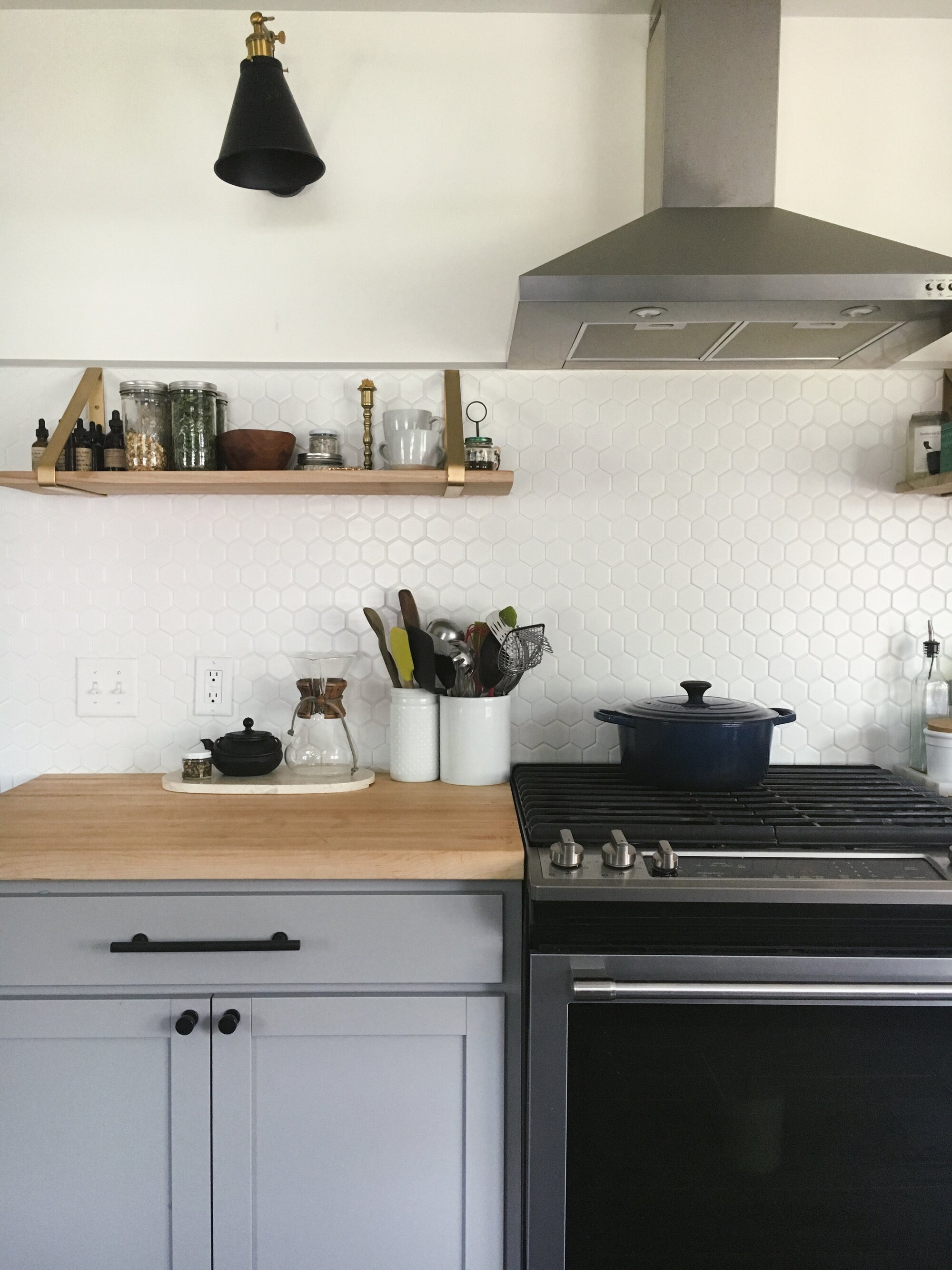
ERIN: A fellow UC Davis alum (and fellow Alyson!) recently wrote a piece for Maia Terra that I really loved about the commodification of mindfulness. Can you talk a bit about that here?
ALYSON: On Maia Terra, we’ve really been brainstorming how we can discuss the threads that underpin our current environmental problems, social anxiety + injustices and climate change, in a thought provoking way. In the discussion around creating this piece, we pinpointed that almost everything in our society is commodified and in the end consumption rules, even with an esoteric concept such as mindfulness. Mindfulness by definition is a mental state achieved by focusing one’s awareness on the present moment, while calmly acknowledging and accepting one’s feelings, thoughts, and bodily sensations. By design, capitalism must consume resources and sell you something. So what happens when capitalism takes hold of the spiritual? How does capitalism try to turn something like mindfulness into something you can buy or attain, and with that, it becomes a privilege, not a right to self expression, knowledge or awareness.
Capitalism and the current commodification of mindfulness conflates the spiritual with something you need to buy, own, or is a status symbol. Only those with the monetary ability can achieve mindfulness. And while mindfulness is something we want to encourage in our society, we have to move away from understanding it as easily attained through purchase. Capitalism exploits everything for profit, including the earth and ourselves. How can we break that hold and keep our spiritual health free from ownership?
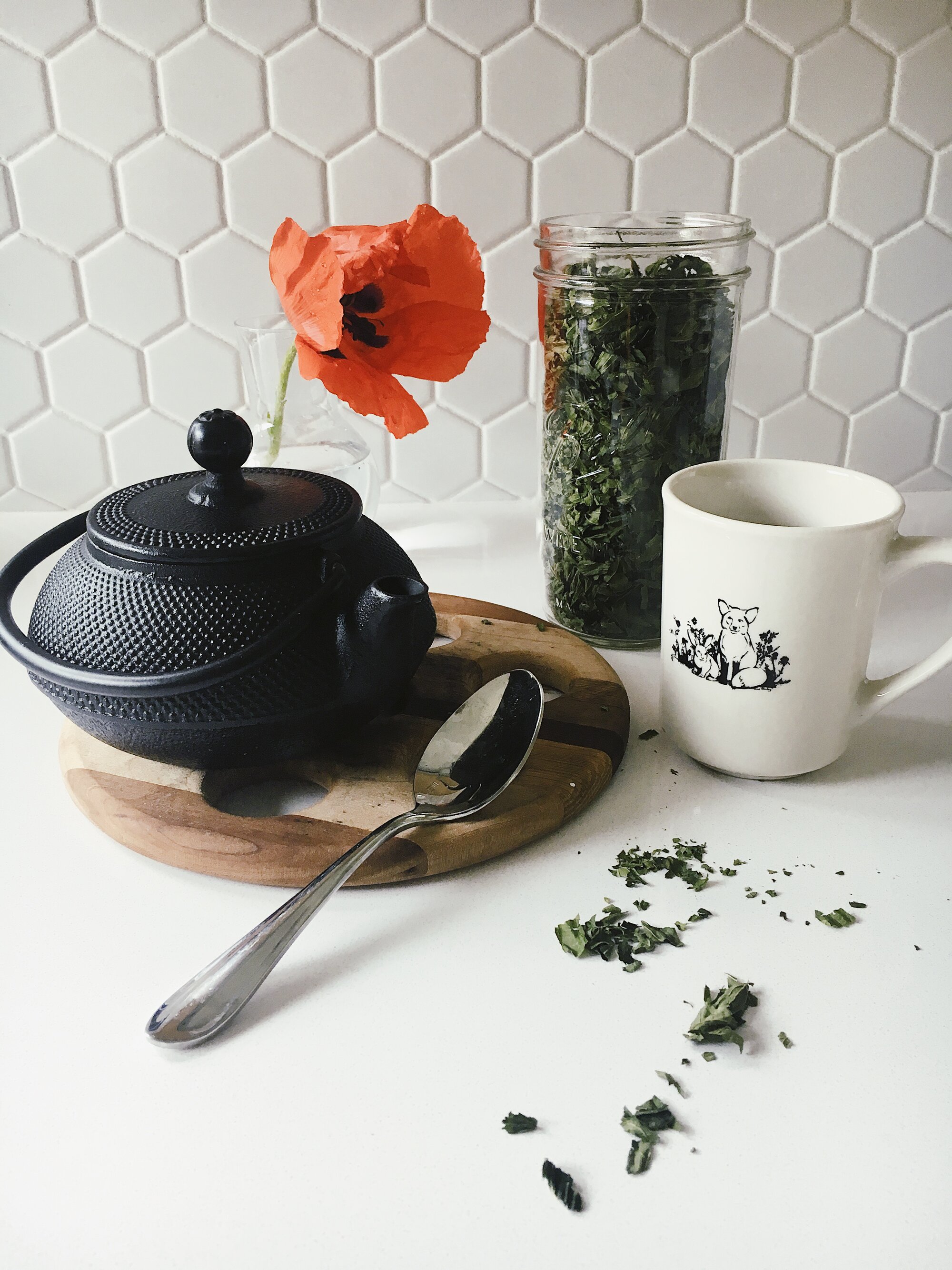
And that begs the question: how can we achieve mindfulness in the everyday and the mundane? How can we make our actions and relationships a part of mindfulness and not something you have to spend thousands for dollars for? You don’t need to buy the newest app for your phone, expensive yoga clothes, magazine subscriptions, essential oils, and books to attain it. That is capitalism at its finest. You can find greater awareness through your breath, your attention, and tuning into your own intuition.
It also comes back to why we need mindfulness more and more in our society? We are all anxious, we feel disconnected from the earth and each other and we are looking to fill the void and ease the pain. Things will not fill the hole of disconnection we experience. Only through deeper connections to the reality of suffering, to our emotions, to each other, can we achieve mindfulness.
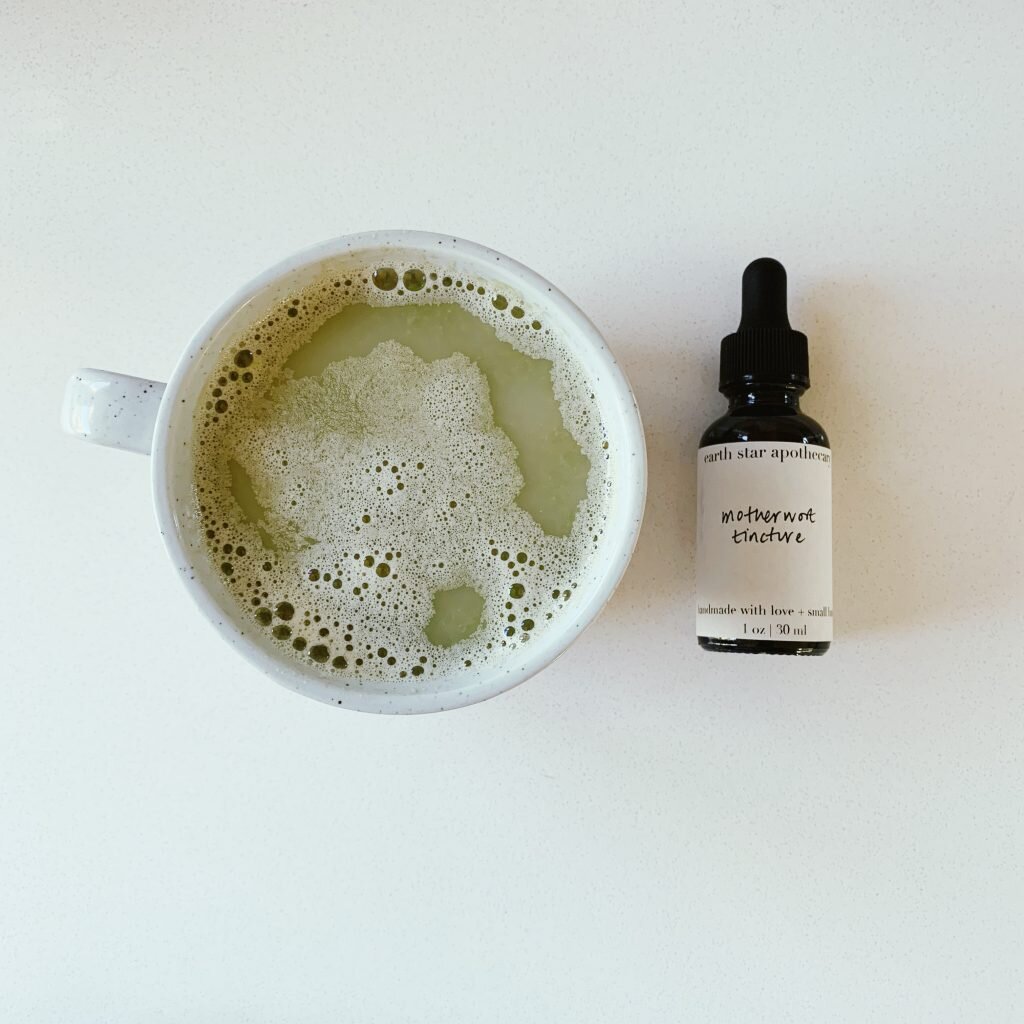
ERIN: Speaking of mindfulness: You often share glimpses of your own meditation practice on Instagram. When did you start to meditate regularly and why? How does it relate to simplicity for you?
ALYSON: I was in a terrible car accident when I was 15. I think 15 is tough age for everyone, wanting to be liked, trying to fit in, full of transitions and external pressures. I also had an eating disorder and following the accident even though my body was “healed” found I was living with a lot of residual pain, trauma and anxiety. The accident was a catalyst for me, it completely changed my life trajectory and shifted my focus to deeper healing. Shortly after the accident in my junior year of high school, I took a eastern philosophy class where I was introduced to the works of Pema Chodron and other zen Buddhist writings. Our class meditated as a group. That was my first introduction and my practice has grown, shifted and is often quite cyclical.
As a yogi, and after doing a teacher training, I found that meditation can come in different forms. Practicing yoga and asana is a type of meditation, but other activities can achieve that too. I find walking and gardening are meditation. Realizing meditation can look different then sitting on a pillow in silence with your thoughts has allowed me to fit it seamlessly into my life as a mother.
When my mind is discursive, or what I lovingly refer to as “monkey mind”, I know I need more meditation. For me, meditation is about creating space to reconnect to my inner knowing. I do this by breathing and tuning in. Rooting into the moment is the best medicine I can give myself and those around me. I think it is human nature to search for a cure or path to feeling better outside of ourselves. Buddhism has taught me going within changes my perspective and allows for a sense of ease in navigating the world around me. In motherhood, I’ve had to shift my expectations of myself and my practice. Sometimes meditation looks like taking 5 deep breaths when chaos is swirling around me, or trying to be present while washing the dishes. Sometimes meditation looks like taking the kiddos for a walk when we are all losing our minds. Meditation is connecting to the unchanging part of ourselves. Going beyond the thoughts, the anxiety, the to-do lists to be nourished by your essential nature.
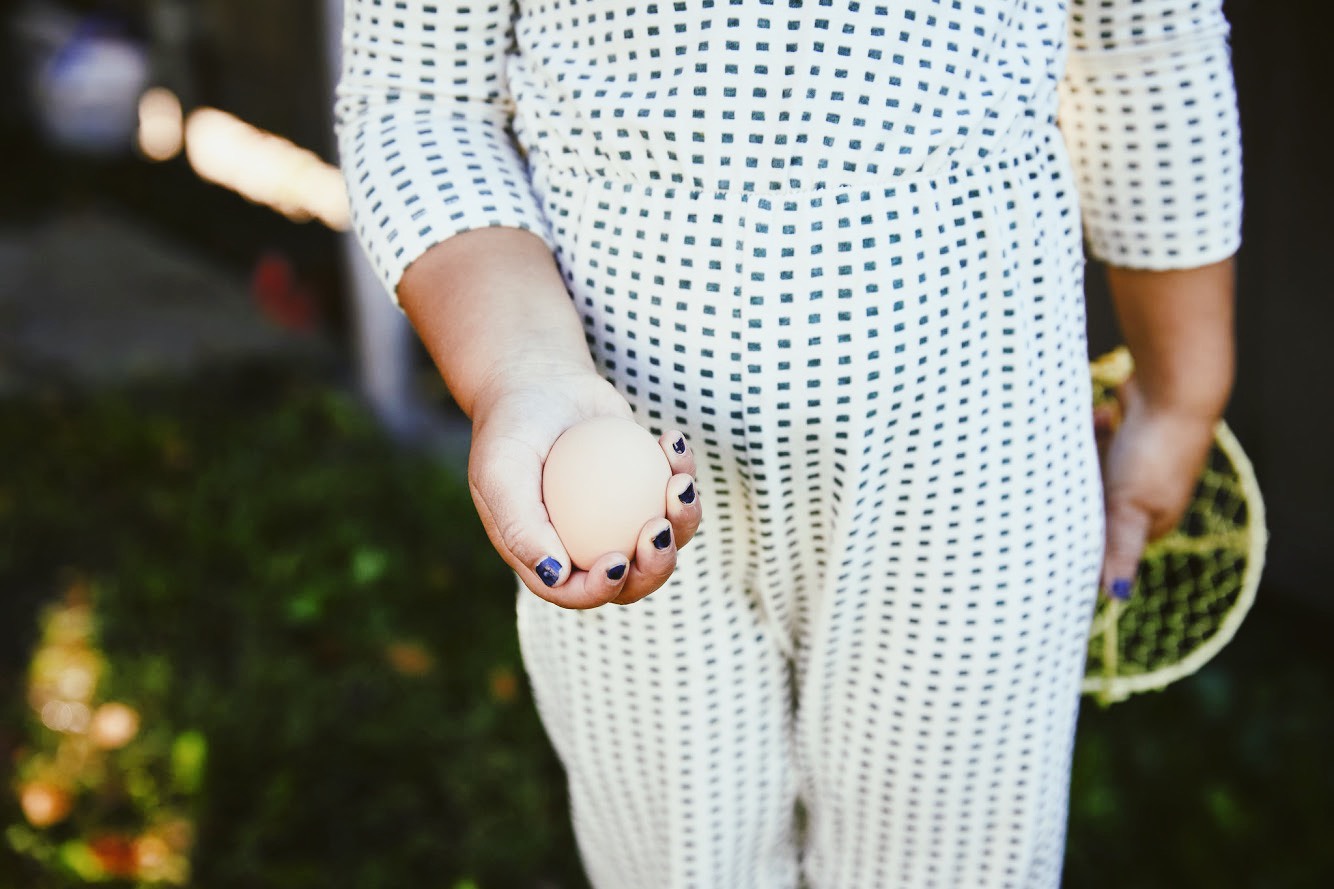
ERIN: As a parent of young kids, what are some of the lessons that you hope to teach your children about environmental stewardship and sustainability?
ALYSON: There are the more obvious skills and habits: recycling, living as low waste as possible, cutting back on meat consumption, composting, growing your own food, if you can, but there are important messages underlying those activities. To me, it is of the utmost importance for our generation to teach our children about humans relationship to the earth, to combat rampant individualism by prioritizing the collective and our reciprocal relationship to the earth.
Our society prioritizes exponential growth, capitalistic individualism and teaches us the earth is ours to enjoy, to do with it as we please for our pleasure. We thought we can travel the world and exploit its resources with impunity. However, we are learning that is not true. We are all going to be living through the consequences of generations worth of actions. The recent report from the UN’s IPCC (Intergovermental Panel on Climate Change) announced we have 12 years to makes substantial changes to our global energy systems to limit global warming. That is going to take us all making big changes.
I really want to impart on our children that we are part of the earth and its ecosystems, not unique or special, but one of many species that call this place home. It is our duty to take care of it. Just as we clean our rooms and care for our homes, the earth is requiring nothing less.
The earth relies on us to be responsible guests. Everything we have comes from the earth, our food, our toys, our cars all come from the earth. And all of those things have impacts on it and each other. We are not separate.
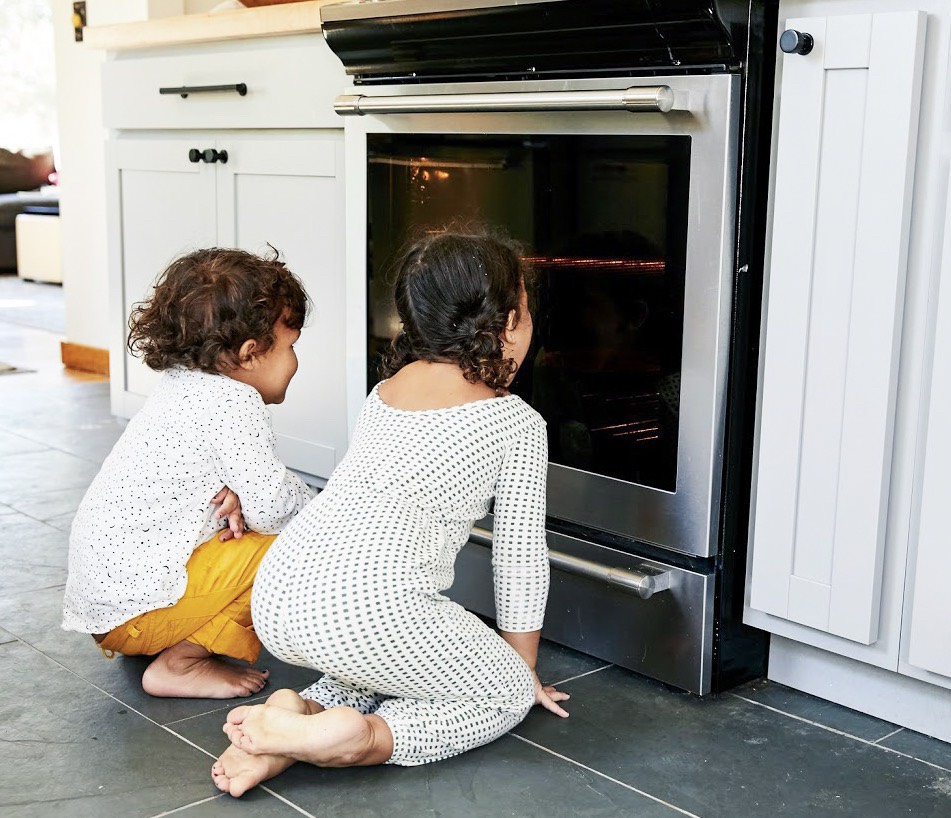
Our children need to learn that humans actions and capitalism have put us in the position we are in and the only way out of it is to connect to other ways of being. For me, this ultimately comes down to accepting that ease and convenience is no longer tenable for our species. In capitalism, the hard work is exported and the consequences are hidden. This is not to scare them or make anyone feel guilty but to impart a sense of responsibility and justice for the systems we exist within. At this point, I don’t have all the answers, but I try my best in little ways to explain and allow it to inform how we live as a family. This year we explored growing some of our own food, raising chickens which has demonstrated in a small way the hard work that goes into existing. Humans, especially in our privileged societies have been separated from hardship and we need to reconnect to the fact: living is hard. If were aren’t doing the hard work, someone else is: the farmer, the garbage person, the laborer in the factory across the world. We love traveling, enjoying nature, but what are we doing to protect it as individuals, families and communities?
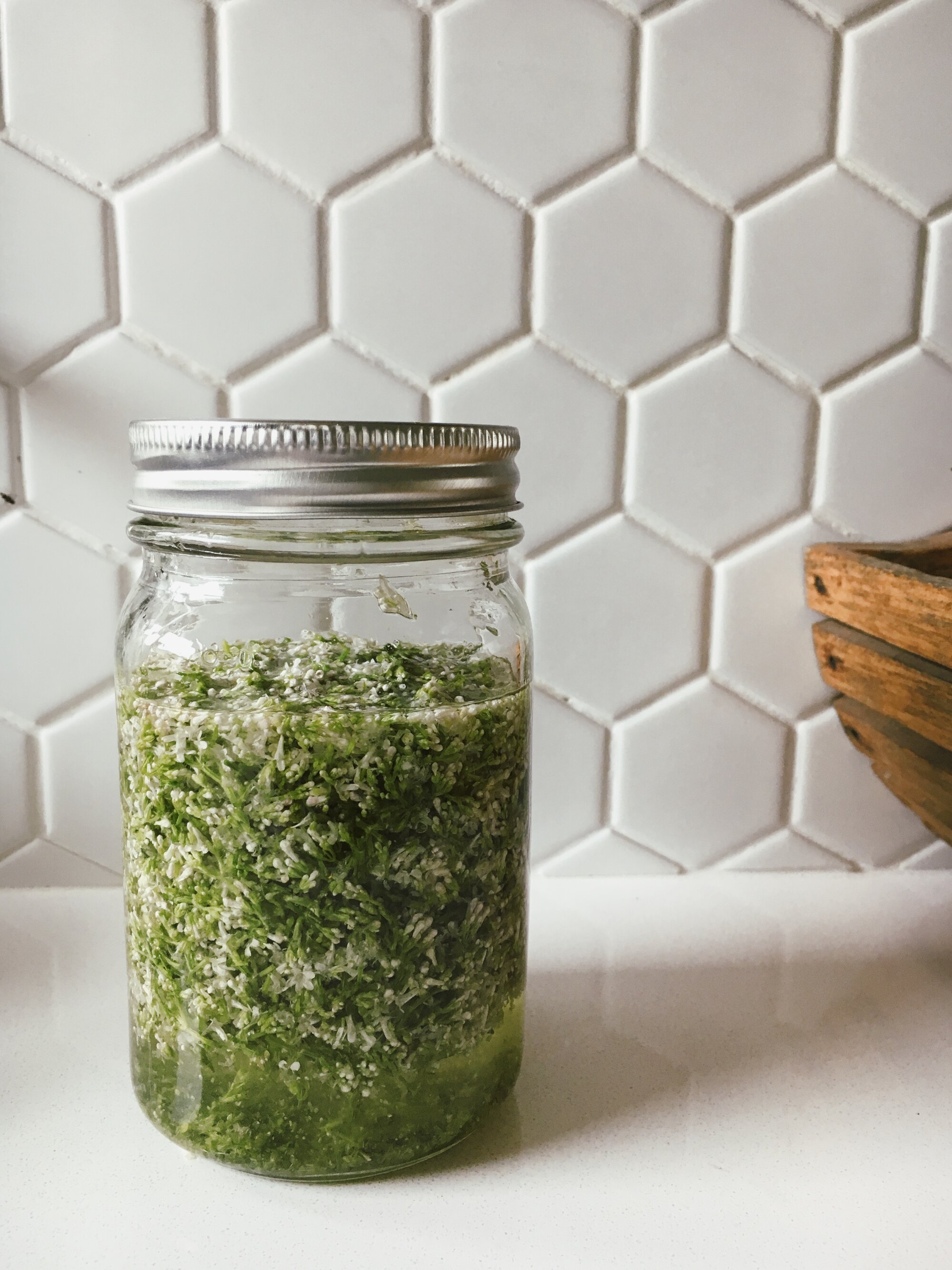
ERIN: Can you share a bit about your work as an herbalist? What are some of the ways that you and your family rely on plant medicine?
ALYSON: I have always been drawn to plants. As a child some of my most vivid memories are of sitting in my grandmothers flower beds and playing with friends amongst the giant sequoias, running my little hands through rosemary hedges and picking twigs of lavender to store in my pockets. My daughter’s name is Magnolia, I cannot hid the fact i’m flower obsessed! In the past, my draw to plant was purely aesthetics: the colors, smells, textures and beauty. In our move from the city to rural Wisconsin we sought a different relationship with our environment, my relationship to plants changed. We purchased the home of an herbalist. She planted the gardens around our small home with hundreds of species of flowers and medicinal plants she used in her practice. The gardens are magical and when I walked through the gardens with her describing her relationship to the plants, i knew I had to learn more. I bought a couple books on herbs and organic gardening to acquaint myself. I started by learning the names of the plants and as time has passed, I’ve begun to listen their song.
Our first summer here, I started by picking thyme and lemon balm. Both plants were calling to me. I learned thyme was good for congestion and lemon balm was calming, one of the most gentle plants for children and adults. Lemon balm became my gateway to the plant world. I made a tincture of it. Tincturing is a method of extracting beneficial elements of the plant, usually in alcohol, vinegar or glycerin. Initially, I was scared to use the tincture, afraid I would poison us but instead lemon balm became an essential plant ally in our home.
In the winter months, we use lemon balm for emotional support and calming seasonal depression. As a Californian, I’m still adjusting to the colder and darker midwestern winters. I have found plant medicine has supported our family in so many ways and is still expanding. Another favorite plant is nettle. I use nettle tea and infusion to support my menstrual cycle and I love to use it in cooking. Magnolia was in a bike accident this summer where she skinned her finger badly. My first reaction was to put Neosporin and a band-aid on it but after a week it was not healing well. A friend and local herbalist was in our garden and she suggested I make a poultice of yarrow and plantain. I plucked a couple leaves, chewed them up and put it on her finger. The next day you could see the healing was accelerated. From then on, anytime she got a scrap or cut, she would ask for a poultice.
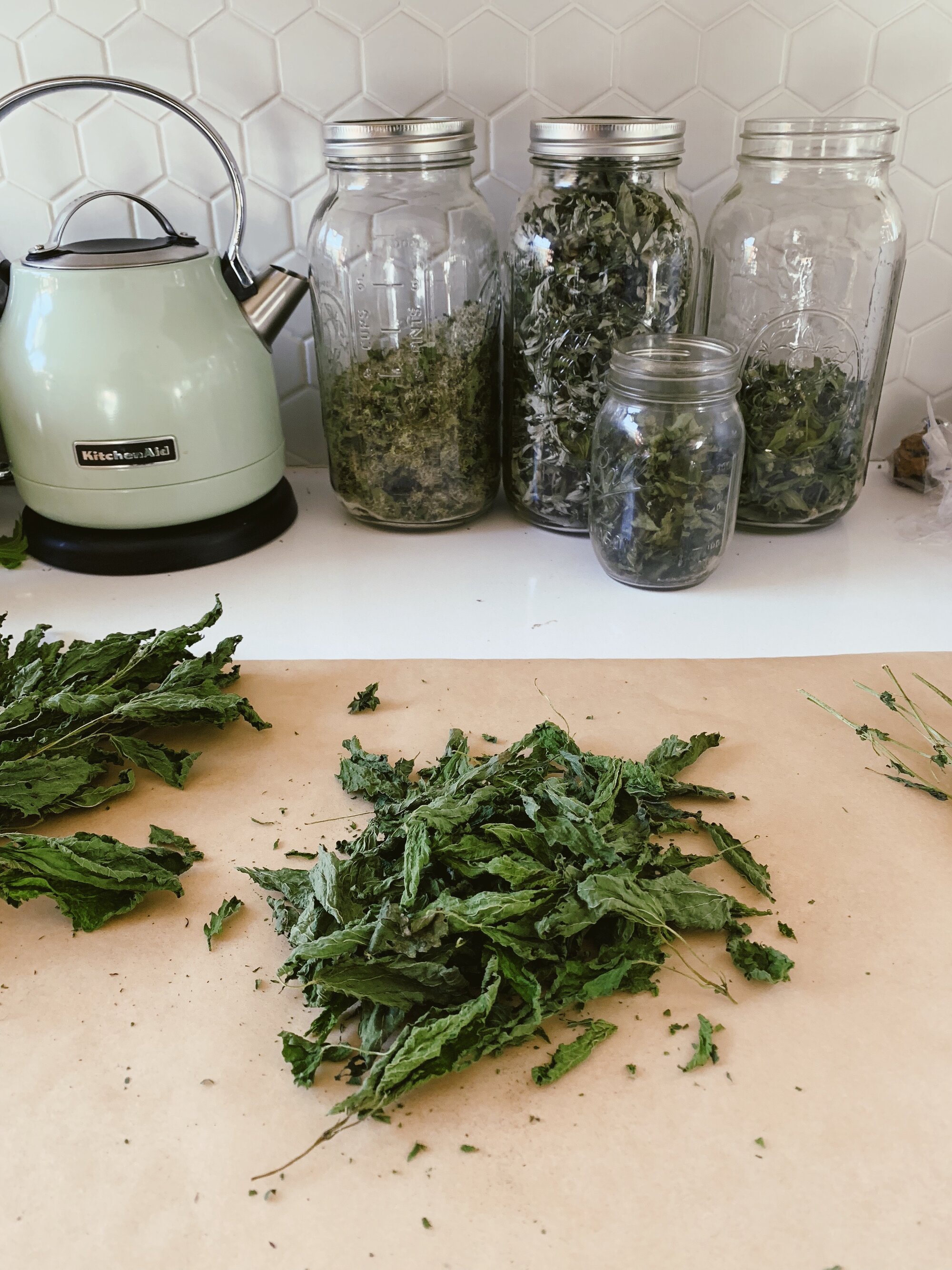
Through this process, she learned identify the plants that helped her. Children have an innate connection to plants. They can identify plants and are so curious to learn. I believe herbalism is vital way to connect our children to the earth and empower them with skills and knowledge for the future. Herbalism teaches them how to care for themselves and others with the knowledge of their ecosystems. All of our relationships to plants deepened. I began learning how to identify local plants and their uses, studying botany. I’ve connected plant medicine with my work as a yoga practitioner using herbs to support chakra and energy healing. I uses teas, tinctures and medicinal mushrooms to nourish us, to support our everyday health, as energetic support as well as medicine in times of acute sickness.
I’m expanding my work and knowledge through an herbalist course, attending conferences and connecting with my local community of herbalists. I love sharing herbal support with my friends and family. I’m in the process of beginning my herbal business, Earth Star Apothecary and hope in the near future to share herbal healing with the broader community. Herbalism is an important way to reconnect to our local ecosystems and relearn the interdependence between humans and plants. Herbalism connects our bodies with the land. I think my hunger for this goes back to having a deep need to heal from my car accident, and a need even deeper than that. Herbal allies help support me in moving through internalized racism, anxiety and intergenerational trauma. Plants are my guides and teachers. In my mind, environmental activism and herbalism go hand in hand. Herbalism and working with plants has been so empowering. I am so fulfilled by the life long adventure I’ve just only begun.
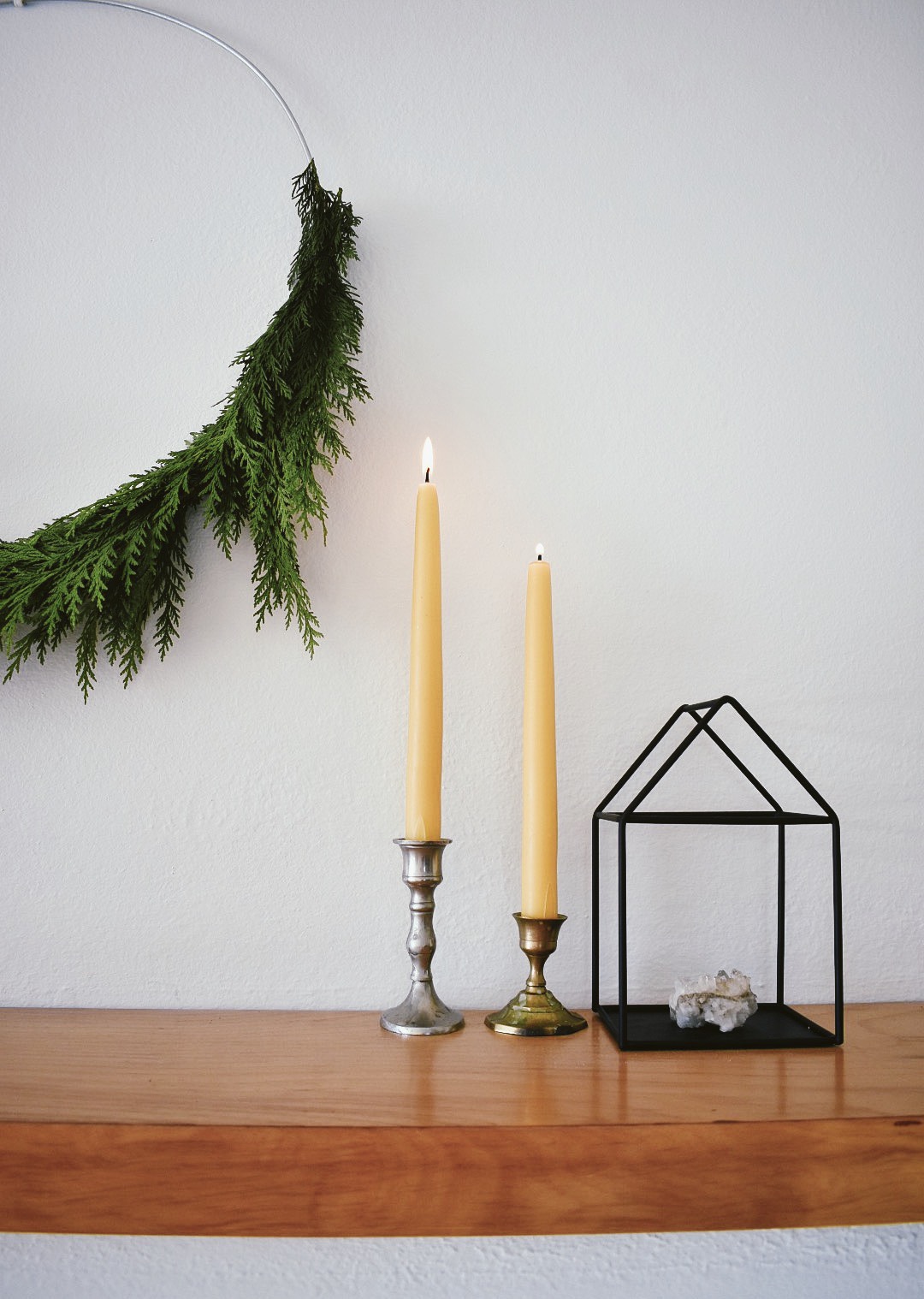
ERIN: You and I share a deep love of the holiday season, but not so much for the unnecessary consumption. Can you share a few of the ways you stay celebratory but simple and sustainable during the holidays?
ALYSON: You know it! But this time of year is truly is a catch 22 for me. Sigh. I’ve loved the holidays since I was a kid. Even then it was not necessarily about the presents (although what kid doesn’t love presents) but it has always been the spirit of the season that resonated so deeply within me. The lights, the music, the evergreens, the music, the magic. My taurus nature.
As my children have gotten older, I am challenged to maintaining our values of sustainability and recreate that magic without over participating in problematic consumption. Especially when surrounding society and even family still participate in mainstream traditions. I personally don’t think it is healthy to try and give your children everything they want. There is an ridiculous amount of pressure on people, especially parents to give the perfect gifts and it can be a hardship for many who cannot afford it. Why max yourself and your bank account to live up to unrealistic expectations established by marketing teams and advertisers?
Last year, I tried gift guidelines for grandparents to limit accumulation of stuff: something you want; something you need; something to wear; something to read. Those guidelines still resulted in too many presents. This holiday season we decided, as parents, we were only going to give them one or two small gifts, that we can control. We want to focus on creating the magic and spirit throughout the season in a ways that bring us together. As part of our traditions, we enjoy hunting for a fresh Christmas tree from a local family owned farm. The process of growing and cutting down trees is actually a better environmental choice than a fake tree. For every tree that takes years to grow into a Christmas tree it is sequestering carbon, creating habitat and every tree planted for ones cut down will do the same. Fresh trees can then be composted.
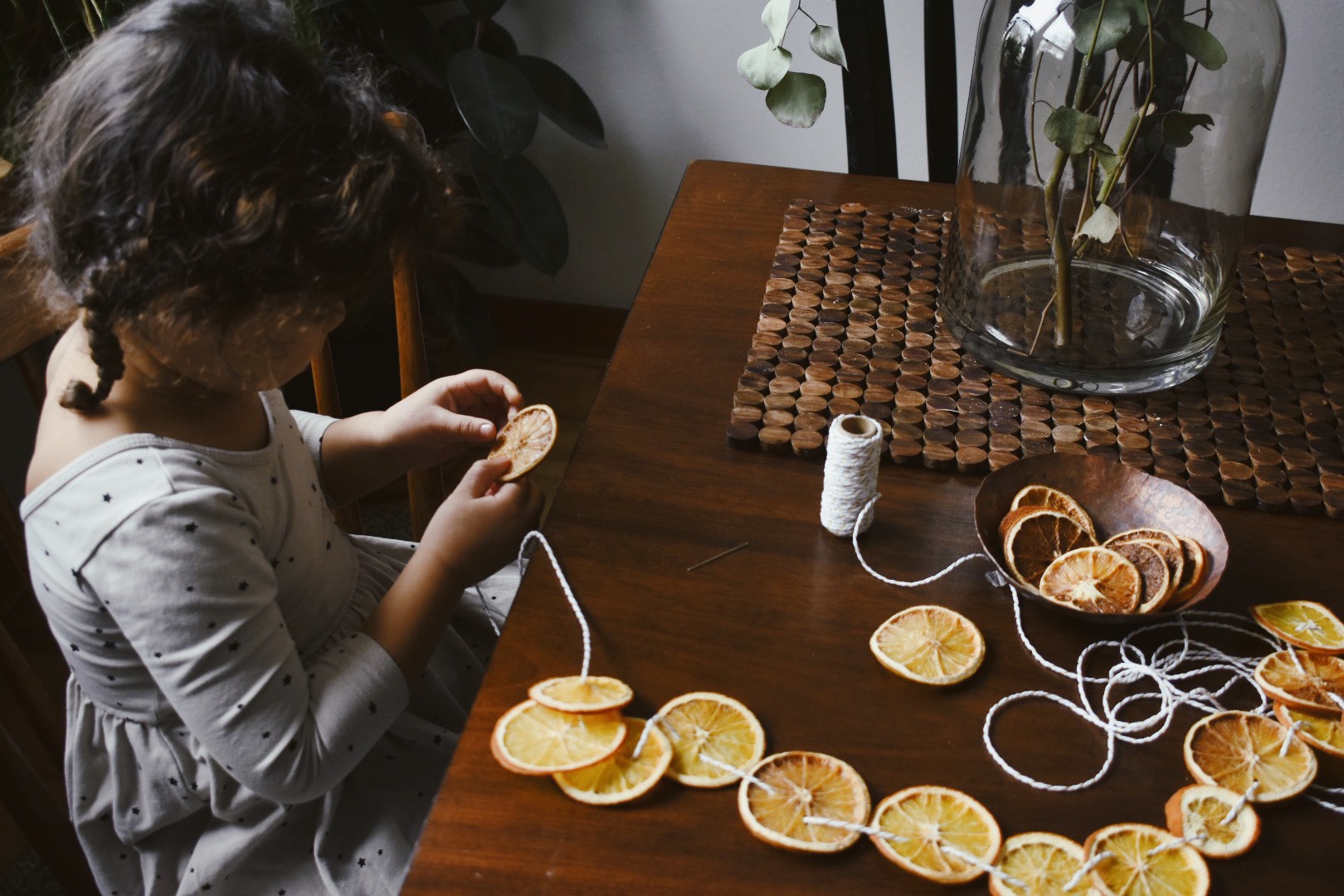
We celebrate advent or the countdown to Christmas buy opening a seasonal book each night. I wrap up all the books the last week of November and store them away when Christmas is over. Keeping the books fresh for the kids and also fulfilling the excitement of opening presents. We don’t have to buy more, we use what we have and what we’ve been gifted. It brings us together each night in a lovely little ritual I can get behind. Some other simple switches I have made to align the season with our values is around decor and wrapping. Choosing natural elements in crafting and creating activities for us the gather around. I’ve enjoyed taking the kids foraging for the pine cones we use to make garland, crafting homemade gifts, making our decor and wrapping gifts in craft paper. All sustainable options that don’t involve buying a lot and get us using our hands and hearts. These options are simple and beautiful and the making becomes the traditions. Its a win win!
Another major element of Christmas, which I believe fuels unnecessary consumption, patriarchy, and white supremacy is the myth and ethos surrounding Santa Claus. I personally do not like the idea of lying to my children to one day have them find out that we orchestrated the whole thing. When I was a kid and found out Santa wasn’t real, I was devastated and felt lied to. It also perpetuates the idea of we should get everything we want if we are good. So last year, we have begun to express to them that Santa can be anyone who embodies the spirit of giving rather than the benevolent old white man. We can be “Santa” to others. Our family and friends are “Santa” when they give to us. So when you receive a gift under the tree it came from someone who loves you and wanted to share the spirit of giving with you, and you can embody that for someone else. Santa is a fun figure, just like Curious George but he does not actually break into our house to leave gifts.
//
To read more from Alyson and others, head to Maia Terra.
To keep up with Alyson’s everyday goings on, follow alyson_laure and maiaterraco on Instagram.
Photographs courtesy of Alyson Morgan. First photograph of Alyson and Magnolia, kids in the yard, and kids in the kitchen were all taken by Hanna Agar.
The Simple Matters Series is inspired in part by curiosity piqued while writing my book of the same title. I wanted to know what simple matters were for other folks. And why simplicity mattered to them in the first place. My own Simple Matters story came out in January of 2016. It’s still available where most books are sold. (Signed copies are available locally at Stories Bookshop!)

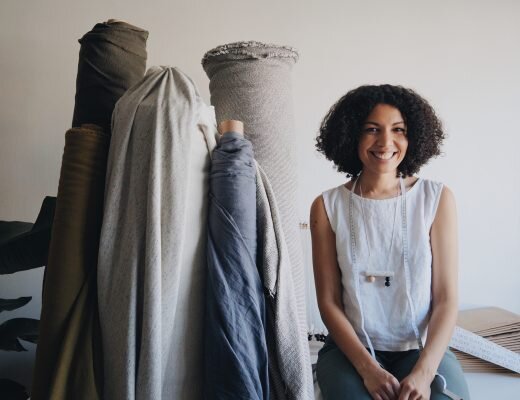
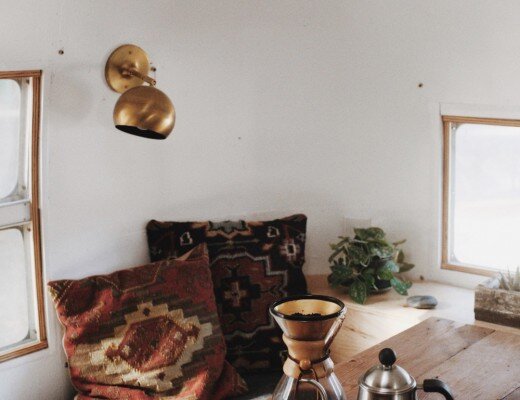
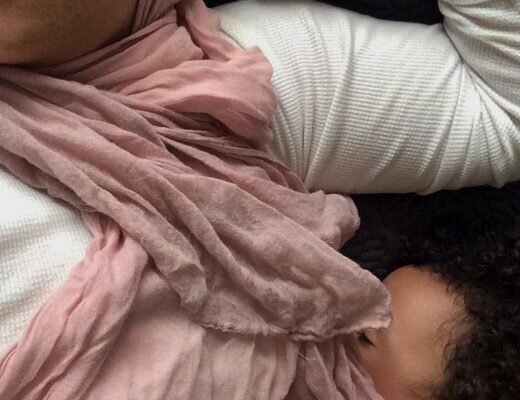
40 Comments
How refreshing to read a post about someone who understands the connection between Capitalism and the state of our environment and is willing to call that out. Let’s also remember that using the label “eco” can be a rather cynical way for companies to sell us more stuff. I’m not talking about small makers , who truly walk the talk — we all have to support ourselves under the system as it currently exists — but exposing Capitalism in all its forms is a first step to moving forward. Thank you Erin and Alyson — I look forward to reading more on Maia Terra.
I agree. At this point if don’t buy from the original makers we are making a mistake probably. Etsy was such a breathe of fresh air and suddenly it was rip off after rip off. Some already a little bit famous independent makers make small collaborations with big brands like Free People or Anthropologie only to see their designs after that small handmade contract being made in China. Zara and all the big chains are copying a real movement towards slow and real and unfortunely people again are buying it. But I’m actually very optimistic that 2019 will bring a lot of positive impact made by the thoughtful consumer. For me I gave up any kind of dairy, being one of the most poluent and heart breaking industries ever inventend, will only buy second hand until I’ll have money for sustainable fashion brands I love and making all the moves towards a (more) zero waste life. ❤️
One of my favorite posts to date. Thank you both!
Another great interview Erin! I love being introduced to new blogs to follow that match my values.
Oh my goodness, that magic hour photo makes me swoon.
Love seeing UC Davis IR alums doing incredible things in this world! A beautiful interview – thanks Erin & Alyson!
What a wonderful post/interview. I am really looking forward to following Alyson’s blog, thank you both for sharing!
This was an amazing interview. Really love how she explains the heart of “santa” to her children. I, too, was devastated at being lied to as a child and wish my parents had found a gentler way to bring tradition into my life.
Echoing what Judith said above about capitalism + eco consumption – THANK YOU.
Definitely following her blog from here on out.
What a wonderful interview! One of my life’s regrets is that I never moved to the Viroqua area. I know it has its problems but it always felt like Utopia. Note to Alyson…I’m sure you know Josh and Teresa of Driftless Organics. Have them introduce you to our good friends Chris and Hanna Sterling-Palm. They are my favorite people and they know how to throw a party:)
Erin, I’ve done some research myself on this, and while I totally agree that we’re reaping the frightening fruit of capitalism in our environment and in human suffering, I’m always left with three questions: (1) To what system or organization do we transition? (2) And how? (3) Are there costs we need to accept if we’re going to abandon capitalism? (You know, besides never seeing Europe and gardening with our kids instead of taking them to hockey practice across town.)
I’ve seen some answers offered, but I’d be curious to know what you think. Reading recommendations welcome!
Good questions! I don’t have any real answers but I’m looking!
Thank you!! Let me know if you find anything satisfying. 🙂
This is such an interesting and important question. I personally enjoy the writing of Kim Stanley Robinson (https://en.wikipedia.org/wiki/Kim_Stanley_Robinson) because he addresses this issue in several of his books describing an economic system that is a hybrid of capitalism, socialism, and environmental conservationism. Both his Mars trilogy (Blue Mars in particular) and his “Science in the Capital” trilogy are what I’d term “near future” science fiction but are very much grounded in finding practical solutions to our current problems. I also appreciate that he takes a realistic but optimistic view of humans and our capacity to learn and adapt.
Thank you SID! I appreciate any leads!
Delightful. Looking forward to following you in 2019. Thank you both!
This entry is occasionally very radical. “Capitalism exploits everything for profits”. That’s a very emotionally loaded comment. If it was written in a business school or sociology or critical thinking university paper, there would be a correction next to it: at the least, Capitalism isn’t a person. A “yogi” is something quite different from a householder yoga practitioner. It involves a very difficult, ancient path of renunciation focused entirely on complete liberation. If you met a yogi claiming to be one in this way you’d turn beet red. I believe the message is much stronger without these sorts of sensational communication choices. That it’s possible to achieve harmony with quiet honesty and calm, sensible wording. If it reduces the impact to do otherwise, I don’t think it’s worth the sacrifice. Respectfully, your reader.
Hi there: this is an interview series where I invite guests to come here and share their perspective. Interrogating word choice in this way is commonly referred to as tone policing and I hope you can reconsider your demands.
Hi Erin,
I think that my comment is the same as a person responding to fake news: something’s really are true and somethings are false. This is very important. I actually loved the upbeat tone of this article. I want you to know that I am going to enjoy your blog more visually as I can’t give the time to read these articles because I believe they are below university standards, and unethical when there are obvious issues such as I’ve mentioned, such as allowing excessive falsehood, and I’m disappointed because I believe the rest of your work is of a high quality. Anti intellectualism is popular in America – like the Kardashians. But you might want to think about whether you want to be a part of this kind of success. If truth, when you can clearly see it, matters to you. And if ‘tone policing’ is used to prevent it.
Briony, I’m having difficulty parsing your meaning here. My blog is not a peer-reviewed academic journal to be sure, but there’s nothing anti-intellectual about this interview and certainly nothing unethical.
Hi Erin, I disagree. I also don’t believe peer review is necessary for daily life matters of truth: the language that unites us all.
LOL. From my experience with peer-reviewed journals, “capitalism exploits everything for profit” would go over just fine! But actually not laughing, because it’s quite troubling that this reader decided that this interview *in particular* somehow crosses the line into falsehood/anti-intellectualism.
I loved this piece and Alyson’s perspective on consumerism and mindfulness. “How does capitalism try to turn something like mindfulness into something you can buy or attain, and with that, it becomes a privilege, not a right to self expression, knowledge or awareness.” What a thoughtful set of questions and a reminder of the class dimensions that run through discussions of minimalism. Thanks so much for bringing her blog to my attention.
Oh and thanks too for the discussion of Santa! I have been wary of investing time/energy into bolstering this mythology for a number of reasons, but her take on it clarified for me exactly why I’m going to find other ways of celebrating.
Hi Helen, thank you for seeing the situation as troubling and for taking the time to consider why I might think this way and providing a counter argument rather than asserting your opinion to do so. If your argument was reasonable then you would have been able to change my mind. I’m grateful that you at the least decided my response wasn’t completely hilarious.
That capitalism exploits everything for profits isn’t emotionally loaded, it is accurate and in fact an essential characteristic of the economic system. Also, there is such a thing as colloquialisms and I understand Alyson’s use of “yogi” in this case not to mean the historic, literal definition of the term but the modern colloquialism.
I’m not sure why you expect “university-standard articles” on a blog, though as a journalist I do appreciate your supposed desire for truth.
Bethany, for some reason unclear to me my responses are not showing up. Now it appears that I’m disinterested. An appearance that isn’t true.
I moderate comments on this site and am not always able to approve them in real time.
This guy says it all in his tweet. Buying and promoting all the “right” stuff , no matter how ridiculously expensive, makes us feel like we are better people. Surely this is not an entirely bad thing, but what do I know…:)
https://platform.twitter.com/widgets.js
I visited Cambodia last Spring (which was an eye opener in so many respects) and our driver’s perspective on how the despised sweat shops help sustain the country’s economy and support thousands of families who would otherwise have absolutely nothing, still resonates with me.
It made me change my mind about boycotting certain brands which, as a decision, ultimately leads to thousands losing their jobs.
Capitalism is a strange animal. We all live in it and can afford to throw rocks at it but despite all the *major* improvements and reforms needed, it still the better alrernative. If people were to ask anyone who has survived Communism in Eastern Europe what they thought on the matter, people’s sometimes sanctimonious perspective of right and wrong might change completely.
Respectfully 🙂
I loved this so much!
So much good stuff here, thank you! I wanted to chime in on the evils of Santa — like so many myths in our culture (even ones talked about here, consumerism, capitalism, “success,” western medicine), Santa is based on something real, and I would suggest that like the curious and respectful method of exploring these other avenues (choosing to respond to consumerism by supporting ethical small businesses, seeking environmentally-responsible gift-gifting and life styles, exploring plant medicine) perhaps our cultural stories deserve the same gentleness.
The myth of Santa, as you might know, comes from the story and witness of a Christian saint from the 3rd century, a holy man who quietly and secretly provided food, clothing, blankets, and little treats to very poor children in his town. Yes, the story has been morphed and twisted beyond recognition, but I believe, like finding the good kernels in these other parts of life, there’s great value to not throwing out the baby with the bathwater, and instead seeking to reclaim the truth and deep beauty of this story (and so many others like it).
Hey Emily, I think this comment touches on some of the most difficult work we have to do when confronting white supremacy, which is to be willing to see the discomfort in things that we’ve been acculturated to see as harmless or helpful; intentional or unintentional. I think there’s lots of opportunity to privately reclaim stories, or change them to better reflect our personal values, but I think it’s worth pausing before asking the Black mother of small children to do so. If the myth of Santa Claus feels patriarchal and white supremacist to her—and not to you—it’s worth sitting with that and centering her discomfort. I think the most helpful questions to ask are why the myth of Santa Claus might feel patriarchal or white supremacist? What about those stories needs interrogation and critical thinking? How can we better support the person who feels alienated or disenchanted with that myth? I don’t have all the answers here, but I think the knee-jerk reaction to defend these kinds of myths as harmless (the same thing happened on this site when I referenced the idea that the myth of Snow White can also be seen as white supremacist) and to suggest that the person making such a claim needs to reevaluate her methodology or take a more gentle approach, intended or not, serves to police Alyson’s tone and perspective.
Oh dear, I didn’t mean to police anyone’s tone or perspective, just to wonder aloud whether stories with religious roots, whatever has happened to them in the intervening 1800 years, needs to be immediately washed out. I’m super disenchanted with the Santa Claus myth, too, and am not continuing it with my children. I more wonder what’s wrong with a Turkish do-gooder than a fat man in a white beard.
What a refreshing read! I feel very little people see this connection between capitalism and our current environmental problems. And while I agree completely, I’m often lost with words trying to explain it to others. Reading texts like this makes me more confident about my own choices in life and explaining them to others. Thank you for sharing!
Really insightful read- thank you Alyson and Erin for having her. I look forward to hearing more about the Earth Star Apothecary.
This is one of my favorite entries on your blog as a whole, let alone in this great series you’re doing. Thank you for it.
I used to get very discouraged from making efforts towards sustainability by the knowledge that even if every single American adopted any given change I was making, it would barely make a dent compared to corporate practices that are unsustainable and irresponsible. It was hard for me to find a place in myself to reconcile these two realities: that I can and should do my best, on an individual level, and that I can and should also be militant and assertive (even aggressive) about holding companies and governments to task. Now, instead of feeling discouraged, I use that “I’m just one person, what does it matter” feeling to fuel a sense of self-forgiveness. I use dish towels instead of paper towels because I can, and I use a PlanetBox for my kids instead of a million plastic baggies each week because I can, and all sorts of things like that. But I sometimes feed my kids individually-wrapped string cheeses, or bring a pre-made frozen microwave meal to work for lunch instead of leftovers in a reusable container, or recycle a jar that could (if I had more time, more energy, a moment to think intently) be repurposed instead – and these are the times that I repurpose that old “what does it matter?” feeling and use it as permission to simply make the choice that works best in the moment, and move on. For me it has been crucial to turn that feeling of being “too small” in the face of capitalism and corporate greed, and turn it around so that it allows me to view my failures – rather than my better moments – as “not worth worrying about.”
I also love the part about Santa Claus. This was much how my parents framed it with us – they never said that Santa gave gifts to “good kids,” and always steadfastly insisted that most people are mostly good but sometimes make bad choices and do bad things, and surely Santa wasn’t about punishing people for mistakes we all make sometimes. And even when I was very young, they would involve us in “being Santa” for someone else, which meant giving something, surprising someone, doing something kind, but especially doing all of that in a way that wasn’t about being thanked for it – that was selfless and, when possible, anonymous. And so as we grew up, and grew out of the myth of Santa, we weren’t coming into new knowledge of an actual truth (and a lie), but just growing into the knowledge that all of it – all the kindness and generosity and selflessness – every bit of it came from people who loved us and who did these things for us. It made it almost more special, in a way. It’s what I do now with my own kids, who are 1 and 4. We make reference to “Santa” bringing gifts, but we also involve them in being “Santa” for others – for family members, and family friends, and other people in our community. It’s such a hard time of year, because I can see how fully they (the 4-year old, at least) cleaves towards the cultural myth of it, the reckless dream of indulgence without accountability or boundary – and I don’t want to stop him from taking childish joy in the fantasy. I try to be intentional about creating a way to indulge the fantasy that grows with the truth, rather than feeling ripped away by it, I guess. But it is hard.
Thanks so much fro bringing Alyson’s work to my attention. Her words here are some of the most incisive and insightful thoughts I’ve read yet on the mash-up of sustainability and oppression that exists in our world today.
And thanks for your helpful responses in the comments, Erin. Your push for folks to do the uncomfortable work is so necessary.
Alyson is amazing–her comments here are so intelligent and insightful. I know I’ll be re-reading this interview many times and heading over to her blog as well. Thank you, Alyson and Erin!
This one really got me thinking. My own relationship to sustainability efforts has been a bit rocky lately. I first made attempts to limit consumption and reduce waste because it minimized mess and distraction around my home and in my life, but also because it felt like a loving gesture toward our beautiful planet, a small step that I alone could take to do right by her.
But I have been slacking lately. Part of it, I suspect, is related to some depression I’ve been battling this year which leads to apathy all around. Another part is that it isn’t always easy. Recycling takes time. Donating items rather than trashing them takes time. Finding a product at a local shop is harder than clicking buy on Amazon, etc. And I feel angry, cynical and hopeless that our political leaders refuse to do anything to address climate change at a systemic level, so why should I bother to do something at an individual level that just takes more effort on my part?
Alyson’s words have made me rethink some of this and want to take more accountability. I especially liked this passage:
“Humans, especially in our privileged societies have been separated from hardship and we need to reconnect to the fact: living is hard. If were aren’t doing the hard work, someone else is: the farmer, the garbage person, the laborer in the factory across the world. “
Yes, those words. I just wrote them out on an index card and put them on my refrigerator as a reminder to do the hard work even when it’s hard.
As a total side note, Viroqua is really near my home town and I love that area and was so glad to see it featured here. Thanks for all your beautiful and hard work, Alyson!
I love this series, and I think this is my favorite entry to date. How refreshing to hear someone thinking about the cross-section between environmental stewardship and the problems of capitalism! My husband and I have been talking about this for a while as we try to figure out how to make more of a personal impact on protecting our own little part of the community, while still realizing that many of the choices we make without thinking about them support a capitalist system that inherently doesn’t want to protect the environment. Your recent posts, Erin, have made us more mindful about purchases–do we really need this, or can we repurpose something we already have?–and other ways in which we can try to disengage from the capitalist system, even for a moment. So excited to peruse Maia Terra and read more from Alyson. Thank you so much for this series.
I absolutely loved this post. I have a lot of conversations with my husband about capitalism, consumption, and climate change, and our need as a society to create new systems. I don’t have many friends who are thinking about/discussing these things and have felt a bit alone in this regard. I’m excited to see this conversation on your blog and to start reading Maia Terra as well. Thanks so much!
I went to high school in the town next to Viroqua (Westby), which is much smaller and poorer but equally beautiful. The Driftless area has already experienced severe impacts from climate change- one village, Chaseburg, has been nearly abandoned after a decade of exceptional floods. This summer, Coon Valley (nearby town of about 700 people) was devastated by historic rains and massive floods. Of course, the FEMA money still hasn’t come through and many people are living in moldy, deteriorating housing. If any readers are interested, they can google Vernon County flood relief for ways to help.
I’m glad to see that conscientious, anti-capitalist, environmentalists like Alyson and her family are making their way to this beautiful corner of the US and working to protect it for future generations. I will definitely be following along on IG!
Comments are moderated.